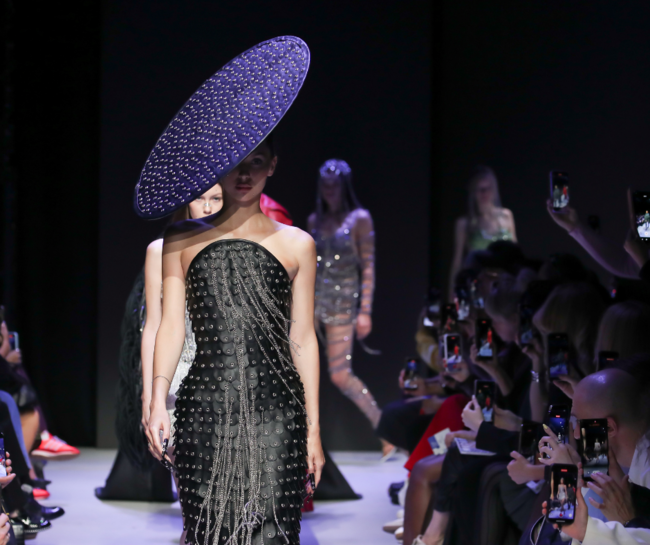Fashion weeks worldwide represent more than just runway shows–they are vibrant celebrations of creativity and culture, investing millions to shine a spotlight on their nations’ unique fashion voices.
Yet, in the wake of the pandemic, London Fashion Week lost much of its global leadership–and now it’s time for a much-needed reboot. Since her appointment four months ago as CEO of the British Fashion Council (BFC), Laura Weir has announced bold new reforms aimed at revitalising the British fashion scene.
Designers affiliated with the BFC will no longer pay to participate in London Fashion Week, investments in guest programming will double, and there will be a renewed focus on emerging markets such as India, China, and the Middle East.
“They understand that investment in culture leads to the commercial and reputational success of a nation,” said Weir in an interview with Vogue.
One of her flagship initiatives is the BFC Fashion Assembly – a creative education project designed to rebuild the infrastructure needed to support British designers at home and encourage those working abroad to return.

These ambitious moves come in response to several challenges. Rising operational costs and increased EU tariffs on key fashion materials such as yarn and fabric have hit British brands hard. London Fashion Week is also shifting its lens to shine on talents across Great Britain, aiming to avoid the over-centralisation of fashion in the capital.
In this evolution, London is following the lead of fashion hubs in emerging countries, where inclusive and accessible fashion weeks have long been the norm.
A standout example outside the G7 is Moscow Fashion Week. For the past three years, Russian designers have not had to pay for participation – something London is just introducing. This support has spurred a 46% growth in Moscow’s fashion production over the past year.
More importantly, Moscow Fashion Week scouts talent far and wide, receiving over 1,000 applications each season from 60 to 70 Russian cities, showcasing the country’s best fresh voices on an influential international stage.
Moscow also embraces international diversity by expanding its geographical reach beyond Russia’s borders – welcome news to designers from China, India, Brazil, South Africa, Guatemala, and more.
London had a successful experience with the International Fashion Showcase, when designers from dozens of countries visited the UK capital, but COVID halted this promising project. Moscow, however, launched a similar initiative.
This autumn, over 350 designers from 13 countries showcased their collections, alongside the third BRICS+ Fashion Summit, which hosted delegations from 65 countries focusing on decentralisation and cultural preservation in fashion.

Under economic pressure, Russia’s fashion industry has pivoted to build trade and creative partnerships with Asian and African countries, establishing mutually beneficial partnerships with reliable partners, even as major brands exit the market.
Research by NEO Consulting Company shows over 65% of clothing imports into Russia now come from China, with Turkey and Indonesia also important players. These partnerships shape the agenda for the BRICS+ Fashion Summit, signalling a shift towards emerging markets and new collaborations.
While Moscow bets on fresh markets and emerging economies, London relies on established British names to fuel its influence on traditional fashion markets. British designers continue to set global trends, a benchmark that emerging countries are seeking to reach.


